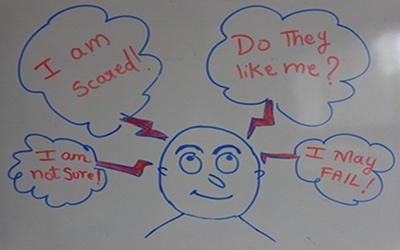A fascinating year is about to end. It is only a few hours before 2015 starts.
There are two things that you can do:
1. Make a powerful entry into 2015; or,
2. Float into 2015 and happen to show up in the New Year.
I am certain you would like to make a powerful entry into the New Year and make 2015 the best year you’ve had till now. If that’s what you are interested in, read on.
So that you can make an authoritative and a commanding entry in the New Year, it is important to do a review of the last year (2014) and take stock. I am going to recommend a set of questions that you ask yourself. I have broken these questions into 2 parts – one that reviews and completes 2014 and another set that helps you declare your goals for the next year.
It is important to know ‘What is so’ about your life at the end of 2014; and then ‘where do you want to be this time next year’ so that you can make an unassailable entry into 2015 and achieve the goals for the New Year. These questions will help you get a deeper understanding of where you are today and where you want to be this time next year.
I am suggesting this to you after having completed this exercise and I can state out of experience, once you have done so, you will be making a very powerful entry in to the New Year.
1. What have I achieved in 2014?
While answering this question, what I did was to break up my life into important areas and identified what is it that I achieved in each of these important areas of my life, such as: my personal life; my work; my health & well-being; and Gift Your Organ Foundation (NGO);
Just writing down my achievements in each of these areas gave me a great sense of achievement and a lot of power to look at audacious and bold goals for the New Year!
I suggest you identify the important areas of your life and list out your achievements in each of these areas.
I acknowledged myself for the various achievements of the year in different areas of my life, to something as simple as acknowledging my new found patience in certain trying situations. I discovered a new me in this process of acknowledging myself. Try it, it is a lot of fun, I promise.
2. What did I learn new in this year?
I have a keen interest in reading and continuously developing myself and one of the ways I evaluate my growth is based on the new things that I learn. I can easily state that 2014 has been a year of a lot of lessons for me, a year of a lot of new knowledge that I gained and the most important recognition of how much I don’t know yet and still need to gain. The more I learn, the more I feel I don’t know enough and hence the more I want to learn.
3. What is it that I missed out on this year?
I missed out on a few of targets and certain self development goals. By simply distinguishing what I missed out in the last year, it has helped me re-evaluate these targets and goals and the ones that continue to hold its importance in my life have found a place in what I want to achieve in the New Year.
4. What do I want to achieve in 2014?
There are two ways to approach any goal in your life – one is to first identify ‘what’ is your goal and then figure out the ‘how’. The other is to first look at the resources that you have, the effort that it will take, and then determine your goal. A lot of people first look at the ‘how’ and based on the `how’, they decide the ‘what’, i.e., their goal.
I am firm believer that you need to figure out the ‘what’ first and the ‘how’ will take care of itself. Think of all your dreams, make them specific, make them measurable, put a deadline on these dreams and go after them! If there is sincerity in your effort, the universe will conspire to achieve these goals.
Break down the important areas of your life and identify ‘where would you like to be this time next year’ in each of these areas. Like I did while reviewing 2014, I have identified where I want to be this time next year in my personal life, my work, health and the Gift Your Organ Foundation. I also included places I want to travel in 2015 and other fun things that I would like to do and people that I would like to meet.
5. What new do I want to learn in the New Year?
I have also indentified what new I want to learn in the New Year. There are some specific goals that I have for myself in this area and I am committed to achieving these goals of gaining new knowledge. There are some courses that I have identified and will commence in the New Year.
Feel free to add more questions if you would like. The more you question yourself, the more you will seek answers from yourself.
Once you have done this, one last but an extremely important thing that will be required is that you will need a structure of people around you with whom you will need to share these goals; people who will not allow you to be lackadaisical and will continuously remind you of each of your goals; people who will hold you accountable to take actions to achieve these goals.
I have created a solid structure of people around me that hold me to account. If you would like to create a similar structure, please feel free to contact me on sameer@sameerdua.com
I can guarantee you, once you have done this, you will not only make a powerful entry in 2015, you will conquer the year!
Make 2015 count in your life!
Good luck and have a blast!
Schedule a Conversation
Please help us with your details.






